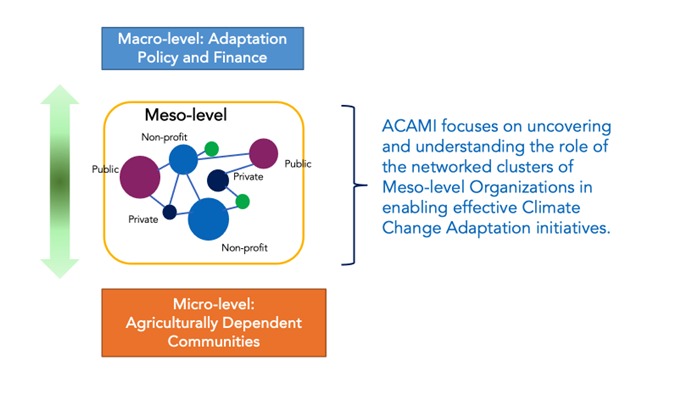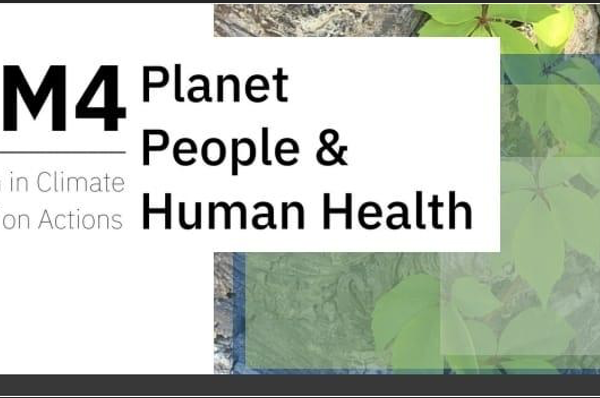Background
Together with ACDI and ASU, ARIN will be the part of the ACAMI core project team and lead the research activities and engagements in East Africa (Kenya).
More specifically ARIN will be responsible for the following tasks:
- Participation in all scheduled and ad hoc research team meetings (virtually and as feasible, in person in Cape Town).
- Contribution to the refinement of the research design, research instruments and approach.
- Contribution to the literature review, especially provide guidance on grey literature.
- Implementation of project activities in East Africa:
Activity 1. Identification, recruitment, consultation with regional meso-level organizations.
Mapping of meso-level organisations contributing to climate adaptation for agriculture (CAA) projects will involve document reviews to identify relevant CAA projects and understand there levels they are in the implementation and services and goods that are being generated. This will help in comprehensive mapping of MLOs and minimise chances of focusing on one category of MLOs but across value chains, support services etc. in addition, we will search CAAs and MLOs in relevant databases and analysis of their relevance to the objectives of the study. ARIN will review the mapped MLOs and undertake preliminary engagement to get deeper understanding of their institutional mandate, vision and their relevant. ARIN will then seek their contributions based on their interest and potential contributions at sharing data and tools and participate in the research activities such as focus group discussions, in-depth interviews, policy and validation workshops. ARIN will not only engagement at the validation but also engage them in the uptake of the research findings and learning towards as well as building focused community of practice to sustain learning beyond the project period.
ARIN will develop database of the relevant organisations for future reference and easy access. This will involve building of a vibrant database for the engaged organisations and those who were identified for potential future engagement but potential for community of practice and learning. The database of MLOs will also be made accessible by relevant organisation and easy for potential MLOs to share and update their contributions to CAA in Kenya and the EAC.
The list of mapped MLOs and data centre of MLOs will make key reference for the drafting of a situational analysis report for MLOs in CAA in Kenya and the east African region. The situational analysis will be enriched by the outputs of Activity 2, 3 and 4 to provide the actual nature of MLOs in CAA in Kenya and the eastern African region.
Timelines: 4 months
Activity 2: Scheduling and carrying out of in-depth interviews and dissemination of a short survey with identified MLOs (minimum 20).
The indepth interviews will be undertake face-to-face and online, whichever is convenient for the targeted interviews. ARIN will attempt as much as possible to undertake face-to-face interviews for the interviews who are preferring and willing. This provides opportunity to not only probe further response to the questions but also build relations for further engagement at community of practice and learning. The selection of the interviews will be guided by the sector, services they provide and contribution to adaptation solutions
A comprehensive interview tool will be co-developed with the MLOs and ACAMI core team to ensure key aspects that relevant but not existing in ongoing CAA solutions in the region are captured and pursued during the interviews. The data collection tool will be guided by the existing assessment tools relevant to CAA, which will be reviewed and updated based on the preliminary engagement with the mapped MLOs. The tool will be validated to ensure relevant metrics are generated to guide the interviews and relevant outputs. The interview tool will be adopted for face-to-face interviews, virtual interviews, and online surveys.
ARIN will use snowballing to identify other relevant MLOs during the in-depth interviews as well as enrich the outputs in the first activity. The list of MLOs and data centre will be updated on regular basis based on the emerging MLOs, actions and their influence in CAA projects in the eastern Africa region.
ARIN will use this interview to build relations and facilitate opportunities for learning and building of a community of practice among the MLOs in the east African region. ARIN will target MLOs with regional influence to strengthen community of practice with regional focus but also bring on board MLOs at national and local level.
Timelines: 4 months
Activity 3: Organisation and carrying out of follow up workshop/ Focus groups (2-3 focus groups with 4-5 MLOs in each region, or potentially 1 larger workshop that would bring all of them together (~15 total).
ARIN will identify MLOs who will participate in the focus group discussions and a workshop where necessary, guided by the outputs of Activity 1 & 2. ARIN will identify targeted MLOs for focused group discussion/ workshop by the mapped and analysed MLOs, where their contributions or potential contributions, interests, or level of stake they have in research, planning, designing, financing, and deploying CAA in Kenya and potentially the east African region is certain or known. At least 3-4 focus group discussions bring together at least 4-5 representatives county, national and regional level will be held for MLOs in 1) ministry departments and agencies; 2) private sector; 3) associations and federations; 4) academia and 5) MLOs associated with international organisations. These focus group discussions will help provide relevant MLOs playing different roles in CAA and across value chains to share targeted data, information, and insights on their level of contribution to CAA. These series of focus group discussion will form firm foundation for selection of key participants for multi-sector or specialised MLOs to interacted and help ARIN to understand how they manage trade-offs and synergies in influencing CAA in east Africa. The key guiding questions for the focused group discussions will be synthesised from the outputs of Activity 1 and 2. The preliminary list of appropriate questions will be synthesised to narrow down to relevant questions for focus group discussion to help unpack emerging issues in the document analysis and interviews.
At least 2 validation workshops will be held to bring together MLOs at sub-national and national and regional level. The participants and key guiding agenda will be co-produced after the series of focus group discussions. The participants of the validation workshops and focus group discussions will be integrated into community of proactive for MLOs in CAA. The workshops will be used to co-develop a framework for community of practice and initiate learning.
This is the stage where the community of practice for MLOs in CAA will be strengthened and launched to bring together and consolidate MLOs to be engaged further to respond to or share more information needed to help understand the emerging knowledge gaps in Activity 1, 2 and 3. The composition of the community of practice will integrate the MLOs domiciled in Kenya but also play significant roles in CAA across the east Africa.
Timelines: 3 months
Activity 4: Organisation and carrying out of interviews with additional stakeholders (private sector, etc)
ARIN will use engagement and outputs Activity 1,2, and 3 to identify the gaps and opportunities to fill through additional interviews. The next series of interviews will focus on addressing targeted knowledge gaps and opportunity for influence using preliminary outputs and learning. ARIN will use the community of practice to sustain engagement and learning among MLOs. That present an opportunity for addressing trade-offs and synergies emerging in the role of MLOs in CAA in the region. This will build on development of at least 3 case studies of MLOs in CAA at at sub-national, national and regional level.
Timelines: 6 months
The ACAMI team is wishing you a fulfilled and successful 2024!
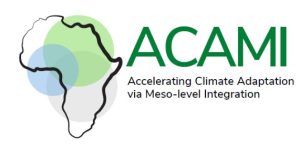
We would like to take this opportunity to express our gratitude for your valuable assistance throughout 2023. Thanks to your support and interest in our work, the ACAMI team was able to engage with over 73 organizations across Kenya, Ghana, South Africa, and Malawi. The insights we gained during the 77 interviews and 4 country workshops were invaluable.
We also were able to host a collaborative session at the Adaptation Futures conference in Montreal, Canada in October. That opportunity allowed us to engage with organizations beyond the African continent that are also confronting the challenges of implementing adaptation initiatives across the globe. It is abundantly clear to us was that your organizations and the partnerships you create possess a wealth of capabilities and skills.
The ACAMI team is now engaging in an in-depth analysis of the rich data. As we do so, we hope to continue the discussions with you and report back on what we have learned so far.
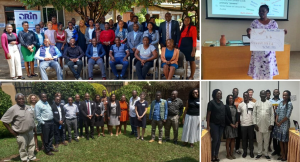
|
Upcoming Activities in 2024
|
At the heart of it, our work is intended to benefit organizations like yourselves and the greater networks in which you participate, by helping make visible and identify your capacities so that you know better about who you can partner with, how to market your strengths, what capacities you might want to be developing as you mature as an organization.
We know that this is only possible through a joined knowledge co-production process. We are committed to a process of collective sense-making and are creating opportunities for mutual learning from this project. To this end, we have scheduled several online convenings throughout the year 2024 that focus on specific topics.
The first Convening of the year will focus on the topic of “Gender & Beyond” and will take place in the form of an online webinar on 15 February. The webinar will bring together a panel of experts who will discuss issues and innovative strategies for making climate change adaptation projects more inclusive and sensitive to the needs of women and other marginalized groups. Our convening seeks to highlight the significance of gender-responsive approaches in achieving resilient communities and sustainable development.
We will be sending out save-the-date emails with more information in the coming days.
Additional convenings planned for 2024 are listed below:
| Date | Topic | Description |
| March/April 2024 | Farmer’s Perspectives on CCA interventions and the role of MLOs | Panel discussion & conversation led by SACAU – farmer’s perspectives on climate change adaptation initiatives and the consideration of Gender and Climate Information and Services |
| May 2024 | The Role and Potential of Climate Information & Services in CCA Interventions Targeted at Smallholder Farmers | Digital Farm Services and CSI discussion: How useful is CSI for farmers, and how does information about farmers feed into CSI? What are the challenges? What are the solutions? |
| Aug 2024 | The ACAMI metrics development – moving from typologies to explorative assessment tools | In-depth conversation and exploration of (self-) assessment tools that would be most valuable for organizations involved in implementing climate change adaptation interventions |
We are looking forward to the continuous conversation with you and hope you will be part of our ACAMI journey and help shape its direction in 2024!
|
About the ACAMI Project
|
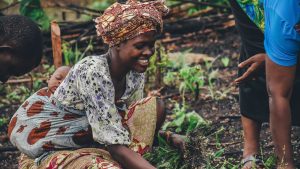
Accelerating Climate Adaptation via Meso-level Integration (ACAMI) is an innovative 2-year transdisciplinary project focusing on the roles and functions of public, private, non-profit, hybrid and networked organizations involved in implementing climate change adaptation interventions intended to benefit agricultural small-scale producers in Africa. Our work focuses on four countries: Kenya, Ghana, Malawi, and South Africa. ACAMI aims to create tools and approaches that help ensure that the diverse roles, capacities, structures, functions, and strategies of these organizations are leveraged effectively in support of investments and policies that lead to more resilient and sustainable livelihoods for the men and women in farming communities across Africa.
Key Objectives:
- Understand how Meso-level Organizations influence the effectiveness, sustainability, and scaling of climate change adaptation
- Identify what might enhance the ability of Meso-level Organizations to exercise full capacities in climate change adaptation
- Co-create tools, and metrics that capture Meso-level Organizations’ attributes and capacities to support partnership opportunities in climate change adaptation
| Click Here For More Information From our Project Webpage |

